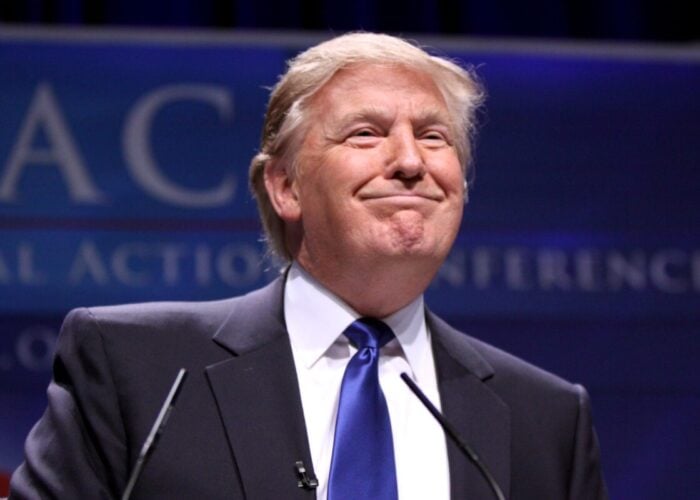The revised US trade duties on Chinese solar panels have created further ambiguity with SolarWorld welcoming the changes, even though the world’s top two producers appear to have benefitted from the changes.
The review of the 2012 tariffs increased the countervailing duties (CVD) to 20.9%. For many tier-one manufacturers, this increase was wiped out by decreases in the anti-dumping rates.
Unlock unlimited access for 12 whole months of distinctive global analysis
Photovoltaics International is now included.
- Regular insight and analysis of the industry’s biggest developments
- In-depth interviews with the industry’s leading figures
- Unlimited digital access to the PV Tech Power journal catalogue
- Unlimited digital access to the Photovoltaics International journal catalogue
- Access to more than 1,000 technical papers
- Discounts on Solar Media’s portfolio of events, in-person and virtual
The 2012 case deals with modules classed as Chinese while the 2014 case targets Chinese modules with Taiwanese cells. Any imported module is subject to one or the other set of tariffs.
An investor note circulated by Deutsche Bank analyst Vishal Shah said the new changes to the 2012 duties were unlikely to impact Chinese firms’ pricing in the US.
“We view this development as a positive for the Chinese suppliers like Trina and Yingli. While the effect on market pricing is unlikely to be substantial (at most, a few cents likely), the Chinese should be able to achieve improved margins in the US market given strong demand trends at least through the end of 2016,” he said.
The original complainant SolarWorld and the lobby group EU ProSun that it uses to lead European trade cases were positive about the announcement.
“The US again leads the way and shows how to act in the face of such flagrant violations of international trade law,” said Milan Nitzschke, president of EU ProSun. “Since the introduction of measures against Chinese dumping the US market is booming, and there is a great variety of solar products for consumers and installers to choose from.”
SolarWorld Americas called the decision a “strong victory”.
Deutsche Bank meanwhile pointed out that Trina Solar and Yingli, the number one and two module manufacturers by volume respectively, had had their rates reduced. Suntech has had its rates increased.
“For Trina and Yingli, their old combined rates were 34.3% (Trina) and 39.72% (Yingli), while the new rates are 30.6% (Trina) and 21.7% (Yingli). The Chinese will be able to use solar cells made in China and import them to the US under the new rates, following this review,” said Shah in the research note. The majority of tier-one firms, including Canadian Solar, Jinko and ReneSola have had modest decreases in their combined rates from the 2012 case.
The Coalition for Affordable Solar Energy (CASE), which lobbies against trade duties in the US, called the results of the review “disappointing”.
“The Department of Commerce chose against lowering the tax on solar imports,” said CASE president Jigar Shah. “Keeping these stiff tariffs in place makes solar power less affordable, slows job growth and prevents more American homes, businesses and utilities from switching to clean solar energy.
“Too much of the solar industry remains embroiled in SolarWorld’s unnecessary, wasteful trade conflict. Uncertainty is sure to continue with more trade litigation, and all solar companies are paying the price. We urge SolarWorld to negotiate a reasonable solution with international manufacturers which can be implemented by the governments of the United States and China,” he added.







